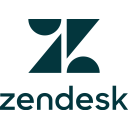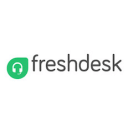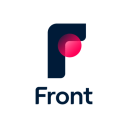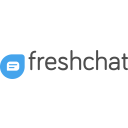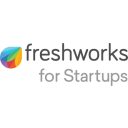Zendesk vs Intercom: Choosing the best tool for your business
- 01Zendesk vs Intercom: overview
- 02What's the difference between Zendesk and Intercom?
- 03Zendesk pros and cons
- 04Intercom pros and cons
- 05Zendesk compared to Intercom
- 06Intercom compared to Zendesk
- 07Features comparison
- 08Zendesk vs Intercom: Which is the best for your business?
- 09Promotions on AI Customer Support software
- 10Alternatives to Zendesk & Intercom
Access up to $50,000 savings on Zendesk & $3,108 on Intercom
Access up to $50,000 savings on Zendesk & $3,108 on Intercom
For most businesses, responsive customer service is paramount. Luckily, a range of customer service solutions is available that enables you to communicate directly with your customers in real-time. These tools are ideal for personalizing the customer experience and building better customer relationships.
Among these options, Zendesk and Intercom stand out as leading providers, popular with both small and large businesses. To help you assess which is better for your business, take a look at our in-depth features comparison below. We step you through the platforms’ pros, cons, and key differences to help you decide which aligns best with your needs. Let’s dive in!
Zendesk vs Intercom: overview
Zendesk and Intercom are prominent players in the field of customer support and engagement platforms, each offering unique capabilities and advantages to address varying user requirements.
Zendesk is distinguished by its robust and versatile customer support solutions. It provides a comprehensive platform for managing customer inquiries, support tickets, and interactions across multiple channels. On the other hand, Intercom shines in its focus on conversational engagement and real-time communication with customers. It offers a chat-first approach, making it ideal for companies looking to prioritize interactive and personalized customer interactions.
Now, let's delve into the Zendesk vs. Intercom comparison to help you make an informed decision when selecting the right customer support and engagement platform that aligns with your specific needs.
What's the difference between Zendesk and Intercom?


Zendesk and Intercom are tailored to enhance your customer support and engagement, providing robust tools for managing customer inquiries, automating responses, and facilitating communication. However, a fundamental difference between them is their scope and focus. While Zendesk’s emphasis is entirely on customer support, Intercom’s features extend into marketing and sales. Zendesk started as a customer support request SaaS, a legacy that continues today with its robust ticketing and customer messaging solutions. In contrast, Intercom aims to provide an all-in-one business communication platform to support, engage, and convert customers with sales and marketing functions. An example of the platforms’ different focus is that Intercom includes an email marketing feature, whereas Zendesk doesn’t.
Another critical difference between Zendesk and Intercom is their approach to CRM. In addition to its service features, Zendesk offers a fully integrated CRM solution, Zendesk Sell, available for an additional cost, starting at $19/agent/month. It includes tools for lead management, sales forecasting, and workflow management and automation. Compared to Zendesk, Intercom offers some CRM functionality. Its customer data platform lets you manage customer data, segmentation, and automated reminders. However, the scope of the features is more limited. However, this may be sufficient for smaller businesses or those using an existing CRM that integrates with Intercom.
Lastly, there is also a significant difference in their pricing. Zendesk’s standard pricing is publicly available. While there can be add-ons, such as premium customer support, you can generally anticipate what you’ll be paying for your Zendesk subscription. Intercom’s plans start from $74/month. Beyond this, Intercom does make its pricing publicly available. It calculates the cost of its Pro and Premium plans based on the number of AI resolutions, people reached, and seats (or users). This can make it challenging to estimate the cost yourself during your research and you need to speak with Intercom for more information.
Zendesk pros and cons
What are the advantages of Zendesk?
- Versatile ticketing system: Zendesk's ticketing system is highly efficient and flexible. It allows businesses to organize, prioritize, and track customer inquiries effectively, ensuring that nothing falls through the cracks.
- Multichannel support: Zendesk enables businesses to centralize customer interactions from various channels, including email, chat, social media, and phone, into a single dashboard. This streamlines communication and ensures consistent service across channels.
- Robust knowledge base: Zendesk provides tools for creating and maintaining a knowledge base, which can help customers find answers to common questions and reduce the workload on support teams.
- Customizable workflows: The platform allows for extensive customization of workflows and automation, which can help businesses tailor their customer support processes to their specific needs and improve efficiency.
- Analytics and reporting: Zendesk offers powerful reporting and analytics features, enabling businesses to gain insights into their support operations. This data-driven approach can lead to better decision-making and improvements in customer service.
What are the disadvantages of Zendesk?
- Costly: Zendesk can be relatively expensive, particularly for small businesses or startups. The pricing structure may not be cost-effective for organizations with limited budgets.
- Complex setup: While Zendesk offers customization options, setting up the platform to align with your specific needs can be complex and time-consuming. It may require technical expertise or additional training.
- Learning curve: Zendesk's extensive feature set can be overwhelming for new users. It may take time for teams to become proficient in using all the tools and features effectively.
- Limited integrations: While Zendesk offers integrations with many popular third-party apps, it may not cover all the specific tools your business uses. This could result in challenges when trying to connect Zendesk with your existing software stack.
- Customer support: Ironically, some users have reported mixed experiences with Zendesk's customer support. While the platform is designed to improve customer support, the level of support received by Zendesk users can vary.
Compare Zendesk to other tools
Intercom pros and cons
What are the advantages of Intercom?
- Real-time communication: Intercom excels in providing real-time communication channels, including live chat and in-app messaging. This allows businesses to engage with customers instantly, leading to improved response times and customer satisfaction.
- Customer data and segmentation: Intercom provides robust customer data tracking and segmentation capabilities. This allows businesses to target specific customer groups with personalized messages and support, enhancing customer experiences.
- Automation and chatbots: Intercom offers automation tools and chatbots that can handle routine inquiries and tasks, freeing up support agents for more complex issues and reducing response times.
- Rich integrations: Intercom integrates with a wide range of third-party apps and services, making it a versatile tool for businesses that want to connect their customer support efforts with other systems, such as CRM or email marketing platforms.
- Knowledge base and self-service: Intercom supports the creation and maintenance of knowledge bases, enabling businesses to provide customers with self-service options to find answers to common questions, reducing the volume of support tickets.
What are the disadvantages of Intercom?
- Pricing complexity: Intercom's pricing can be complex and expensive, especially for businesses with a large user base or those looking to access advanced features. It may not be cost-effective for smaller companies or startups.
- Learning curve: While Intercom is feature-rich, it can have a steep learning curve for new users and administrators. It may take time to fully utilize its capabilities effectively.
- Limited customer support: Some users have reported challenges with Intercom's customer support, including slow response times and difficulty resolving issues. The quality of customer support can vary.
- Over-reliance on chat: Intercom's strong focus on chat-based communication may not suit all business models or industries. Some customers may prefer other communication channels, such as email or phone.
- Privacy and data security: Handling customer data and communication in real time raises privacy and data security concerns. Businesses using Intercom need to ensure they have robust data protection measures in place, especially considering GDPR and other data protection regulations.
Compare Intercom to other tools
Zendesk compared to Intercom
When comparing Zendesk and Intercom, Zendesk stands out with its robust and versatile customer support solutions. It offers a comprehensive platform for managing customer inquiries and support tickets across multiple channels, providing businesses with a powerful toolset for customer service management. Zendesk's extensive feature set and customizable workflows are particularly appealing to organizations looking to streamline and scale their customer support operations efficiently.
While both Zendesk and Intercom are formidable players in the customer support and engagement space, the choice between them largely depends on your specific needs. Zendesk offers a comprehensive and versatile support platform, making it an ideal choice for businesses seeking a robust and customizable solution for managing customer interactions. In contrast, Intercom shines in real-time communication and automation, making it a preferred option for organizations that value instant engagement and chat-based support interactions.
Is Zendesk better than Intercom?
Determining whether Zendesk is better than Intercom hinges on your unique customer support and engagement requirements. Zendesk excels as a robust and versatile customer support platform, offering comprehensive tools for managing customer inquiries and support operations across various channels. If your business values a feature-rich and customizable solution for customer interactions, Zendesk may be the better choice.
In contrast, Intercom specializes in real-time communication and conversational engagement, making it a strong contender for businesses that prioritize instant interactions and personalized customer engagement. Its chat-based approach, automation capabilities, and chatbots are ideal for handling routine inquiries efficiently.
What is Zendesk best used for?
Zendesk is primarily designed for efficient and comprehensive customer support and engagement. It excels in helping businesses manage and streamline their customer interactions across various channels. Zendesk's core functionalities include ticket management, customer inquiries, and support operations, making it an excellent choice for organizations that prioritize delivering top-notch customer service.
With its robust ticketing system, versatile automation capabilities, and extensive reporting tools, Zendesk empowers businesses to handle customer inquiries effectively and improve support efficiency. It's best used when you need a centralized platform to manage customer support operations, whether through email, chat, social media, or phone. Zendesk is ideal for businesses seeking to enhance their customer service processes and maintain a high level of customer satisfaction across all communication channels.
Can Zendesk replace Intercom?
Whether Zendesk can fully replace Intercom depends on your specific customer support and engagement requirements.
Zendesk is a robust and versatile customer support platform known for its ticket management system, automation capabilities, and comprehensive customer interaction management. It excels in providing a centralized hub for handling customer inquiries across various channels and is ideal for businesses seeking to streamline their customer service operations.
However, if your organization heavily relies on Intercom's real-time communication features, in-app messaging, and chat-based support, transitioning entirely to Zendesk may not cover all your needs. Intercom's focus on instant interactions and personalized engagement is particularly valuable for businesses prioritizing chat-first customer support and real-time communication.
Is Zendesk cheaper than Intercom?
When comparing the pricing of Zendesk and Intercom, there are significant differences to take into account. Zendesk’s pricing offers a range of plans, including a tiered model with different levels of features and capabilities. While the pricing can be flexible, it may become more costly as your organization's requirements and usage increase.
In contrast, Intercom follows a pricing structure that can be straightforward for businesses looking for specific functionalities. However, it's important to note that Intercom's pricing can vary depending on factors such as the number of users, conversations, and additional features you require. In some cases, Zendesk may be considered a more cost-effective option compared to Intercom, particularly for businesses with smaller budgets or those looking for more predictable pricing.
Is there a better AI Customer Support software than Zendesk?
While Zendesk is a widely used and versatile customer support and engagement platform, it's important to consider whether there might be a better software solution tailored to your specific needs.
There are several notable alternatives to Zendesk in the customer support and engagement space, including Intercom, Freshdesk, Help Scout, and Zoho Desk.
The decision to choose a customer support platform should be based on a careful evaluation of your organization's unique requirements, customer interaction channels, scalability needs, and budget constraints. While Zendesk offers a comprehensive set of features, other platforms may excel in certain areas or provide more tailored solutions that align better with your customer support strategy and objectives.
6 months free on Zendesk
Get 6 months free on Zendesk and up to $50,000 savings with Secret.
Intercom compared to Zendesk
Intercom distinguishes itself with its real-time communication and conversational engagement features, making it an attractive choice for businesses and organizations prioritizing instant customer interactions. Intercom's pricing structure offers different plans to cater to various customer support and engagement needs, accommodating users with different budgets.
While both Intercom and Zendesk excel in customer support and engagement, the decision between the two depends on your specific requirements. Intercom is particularly strong in its chat-based support, in-app messaging, and proactive outreach, making it an ideal choice for businesses looking to provide immediate and personalized customer interactions. It's well-suited for organizations aiming to enhance customer engagement through real-time communication.
Is Intercom better than Zendesk?
The comparison of whether Intercom is better than Zendesk depends on your specific customer support and engagement needs and objectives. Intercom stands out with its emphasis on real-time communication and conversational engagement, making it an excellent choice for businesses and organizations that prioritize immediate and personalized customer interactions. If you seek to enhance customer engagement through chat-based support, in-app messaging, and proactive outreach, Intercom may be the superior option.
However, it's essential to recognize that Zendesk has its own array of strengths, particularly in its comprehensive and versatile customer support platform. Zendesk offers a wide range of features, customizable workflows, and extensive integrations, making it a strong choice for businesses looking to centralize and streamline their customer inquiries and support operations across multiple channels.
What is Intercom best used for?
Intercom is a versatile customer communication platform designed to foster meaningful interactions between businesses and their customers. It excels in personalized messaging, customer support, and engagement.
Intercom is best used for establishing real-time, personalized conversations with website visitors and app users, providing efficient customer support through chat, and nurturing leads through targeted messaging. It's an invaluable tool for businesses aiming to enhance customer satisfaction, increase conversions, and build lasting relationships. Moreover, Intercom's automation capabilities streamline communication workflows, making it an ideal choice for businesses seeking to deliver exceptional customer experiences and grow their user base through tailored, interactive communication.
Can Intercom replace Zendesk?
Determining whether Intercom can effectively replace Zendesk depends on your specific customer support and engagement requirements.
Intercom is known for its real-time communication features, chat-based support, and conversational engagement, making it an attractive option for businesses prioritizing immediate and personalized customer interactions. If your organization aims to enhance customer engagement through live chat, in-app messaging, and proactive outreach, Intercom might serve as a viable alternative to Zendesk.
However, it's essential to consider the strengths of Zendesk, which offers a comprehensive and versatile customer support platform. While Intercom excels in certain aspects of customer communication, Zendesk offers its own set of strengths that cater to different aspects of customer support and engagement.
Is Intercom cheaper than Zendesk?
When comparing the cost of Intercom to Zendesk, it's important to consider the pricing structures and potential variations based on your specific customer support and engagement needs.
Intercom and Zendesk both offer various pricing plans, and the overall cost can vary significantly depending on factors such as the number of users, the volume of customer interactions, and additional features required. Intercom's pricing typically includes different plans designed to accommodate businesses of various sizes and needs. While Intercom offers a free trial, it's important to note that the cost can increase as you scale and add more features or users.
Whether Intercom is cheaper than Zendesk depends on your specific usage, feature requirements, and the number of users in your organization.
Is there a better Collaboration software than Intercom?
Intercom is a widely used customer support and engagement platform, but it's essential to assess whether there might be a more suitable software solution for your specific customer support and engagement requirements.
There are several notable alternatives to Intercom in the customer support and engagement space, including Zendesk, Freshdesk, Help Scout, HubSpot, and Zoho Desk.
The decision to choose a customer support platform should be based on a careful evaluation of your organization's unique needs, customer interaction channels, scalability requirements, and budget constraints. While Intercom offers a range of valuable features, other platforms may excel in certain areas or provide more tailored solutions that better align with your customer support and engagement strategy and objectives.
1 year free on the Advanced plan on Intercom
Get 1 year free on the Advanced plan on Intercom and up to $3,108 savings with Secret.
Features comparison
Zendesk’s Automation and Workflow Proves More Advanced than Intercom’s

In the realm of automation and workflow management, Zendesk truly shines as a frontrunner. It empowers businesses with a robust suite of automation tools, enabling them to streamline their support processes seamlessly. Zendesk allows for the creation of predefined rules and workflows that efficiently route tickets to the appropriate agents, ensuring swift and precise issue resolution. Moreover, Zendesk excels in sending automated responses and escalating critical issues with precision.
For instance, a customer inquiry about product availability can trigger an automated response providing real-time stock information within Zendesk. While Intercom does incorporate automated responses via chatbots, it doesn't exhibit the same level of sophistication and versatility in its automation capabilities as Zendesk. Zendesk's advanced automation features make it the preferred choice for businesses seeking to optimize their workflow and enhance customer support efficiency.
Intercom Excels at Real-Time Customer Engagement Compared to Zendesk

Intercom distinguishes itself by excelling in real-time customer engagement. It offers a comprehensive suite of features that empowers businesses to foster immediate connections with their customers. With Intercom, businesses can engage in real-time chats, schedule meetings, and strategically deploy chat boxes to specific customer segments. What truly sets Intercom apart is its data-driven approach to customer engagement. It actively collects and utilizes customer data to facilitate highly personalized conversations. For instance, it can use past interactions and behaviors to tailor recommendations or responses.
While Zendesk incorporates live chat and messaging functionalities to facilitate proactive customer engagement, it falls short of matching Intercom's level of personalization. Intercom's data-driven approach enables businesses to create deeper, more meaningful connections with their customers, making it the superior choice for those seeking to provide highly tailored and responsive customer experiences.
Zendesk and Intercom are Equal in Terms of Multichannel Support
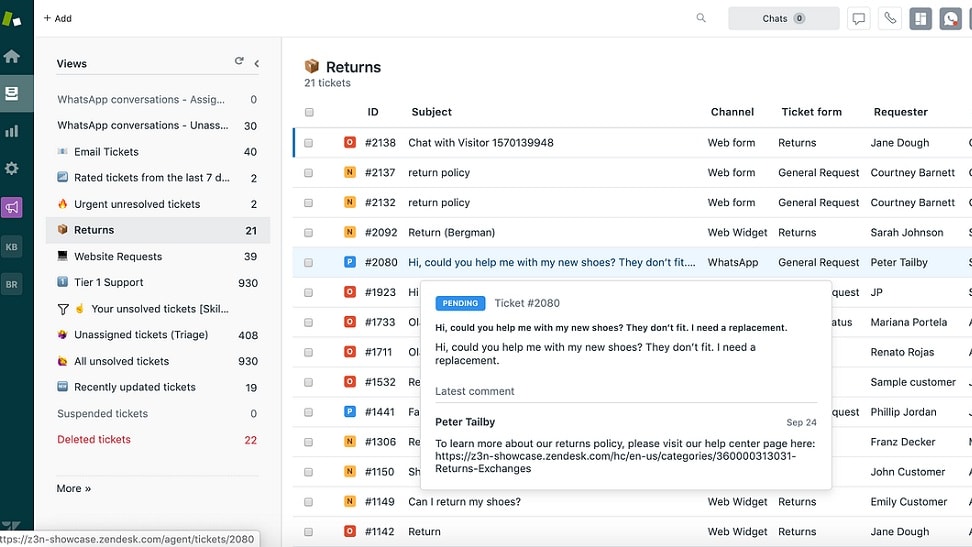
Both Zendesk and Intercom are standout performers when it comes to providing comprehensive multi channel support, catering to diverse customer needs. Zendesk offers a versatile array of communication channels, including email, chat, social media, phone, and web forms. This breadth of options ensures that businesses can effectively engage with their customers through their preferred communication method.
Intercom, on the other hand, goes beyond just offering channels. It introduces shared inboxes tailored for different teams, such as sales, marketing, and customer success. These shared inboxes facilitate seamless customer interactions across multiple channels, ensuring that teams can collaborate efficiently and maintain consistent, top-notch support.
Zendesk Leads in Integration Capabilities Over Intercom

When it comes to integrations, Zendesk and Intercom both offer diverse possibilities, but here, Zendesk takes the lead. Zendesk boasts an extensive array of integration options, with over 1,500 apps in its ecosystem. While both solutions seamlessly integrate with standard tools like Slack, email services, and CRM systems, Zendesk's comprehensive integration network ensures compatibility with a wide range of applications, offering businesses extensive flexibility.
While Intercom does offer valuable native integrations with Facebook and WhatsApp, Zendesk's vast integration catalog makes it the preferred choice for businesses in need of robust and versatile integration capabilities.
Zendesk Excels in User-Friendliness Compared to Intercom
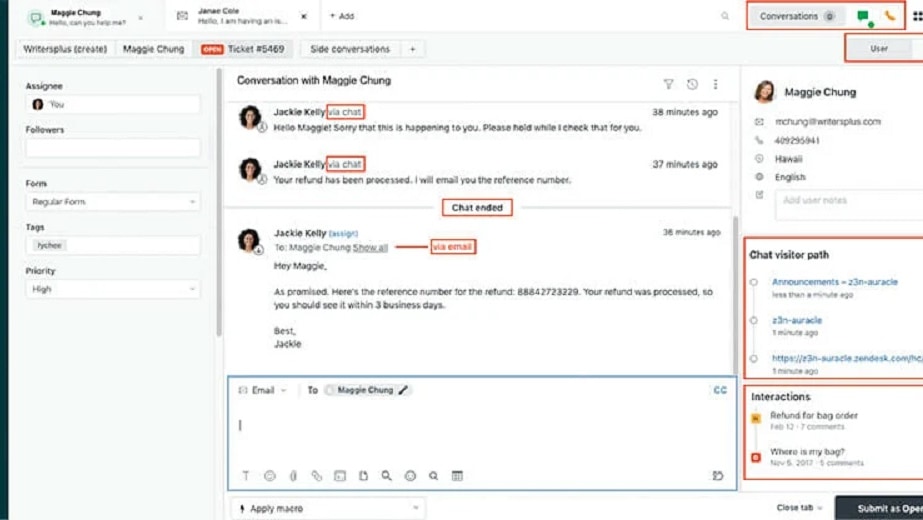
When it comes to ease-of-use, Zendesk undeniably takes the lead over Intercom. Zendesk's intuitive design caters to beginners and non-technical users, offering a seamless experience right from the start. For instance, when you need to access specific features or information, Zendesk's organized interface ensures that everything is easily locatable, reducing search time and user frustration.
While Intercom also provides a user-friendly interface, some users may find it a tad overwhelming, especially when juggling multiple support requests. Zendesk's simplicity, combined with its robust functionality, significantly reduces the margin for errors and confusion. In the realm of user-friendliness, Zendesk clearly emerges as the superior choice.
Zendesk Offers a More Robust Ticketing System than Intercom

Zendesk outshines Intercom for customer support workflows with its core feature, the ticketing system. Zendesk's ticketing system is renowned for its highly organized approach, which empowers businesses to manage customer support requests with unparalleled efficiency. These tickets can then be systematically tracked, prioritized, and responded to. This structured approach ensures that no customer query goes unnoticed or unattended, regardless of the channel through which it was initiated.
Intercom, while offering collaborative features for teams handling customer queries, lacks the structured ticketing system found in Zendesk. This distinction is crucial, as it means that Zendesk provides a more methodical and streamlined process for managing customer support, making it the preferred choice for businesses prioritizing efficiency and organization in their customer service operations.
Intercom’s Customer Onboarding Feature is More Efficient than Zendesk’s Knowledge Base

In the domain of customer onboarding, Intercom takes a definitive lead with its distinctive feature – the ability to create interactive product tours. These tours serve as virtual guides, leading customers through a website and product offerings in an engaging and personalized manner. This approach not only enhances user understanding but also significantly boosts user engagement.
For instance, Intercom can guide a new software user through each feature step by step, providing context and assistance along the way. In contrast, Zendesk primarily relies on a knowledge base, housing articles, FAQs, and self-help resources. While this resource center can reduce the dependency on agent assistance, it lacks the interactive element found in Intercom's onboarding process.
Subscribe to our newsletters.
No FOMO here. Stay up-to-date on all the latest deals and news with our monthly newsletter straight to your inbox like 125,000+ entrepreneurs (+ Get 10% off on on our Premium Membership!)
Zendesk vs Intercom: Which is the best for your business?
Zendesk is the best tool for you if:
- You’re looking for a centralized platform to manage diverse customer support solutions, including ticket management, social media messaging, and phone support
- You need a user-friendly customer support platform that caters to your sales and service team members with limited technical expertise
- Access to a dedicated CRM that seamlessly integrates with support functions is essential to your business
- You’re on the lookout for a tool with robust ticketing system management and knowledge base features that help reduce your support team’s workload
- You aim to streamline and scale customer support efforts while maintaining quality customer service across all channels, ensuring no customer contact is overlooked
Intercom is the best tool for you if:
- Your priority is interactive, personalized engagement with customers in real-time
- Your customer base mainly consists of web or app users and you’re looking for a tool that focuses on chat support, like chatbot features, to deliver instant customer support
- Access to 24/7 customer support for the software, even on lower-tier plans, is non-negotiable for your business
- You’re seeking a customer support solution integrating marketing and sales features to grow your customer base through tailored, interactive communication and support
- Your product or service requires customer onboarding and you need a tool to create interactive product tours and virtual guides
Alternatives to Zendesk & Intercom
Promotions on AI Customer Support software
Start saving on the best SaaS with Secret.
Secret has already helped tens of thousands of startups save millions on the best SaaS like Zendesk, Intercom & many more. Join Secret now to buy software the smart way.

